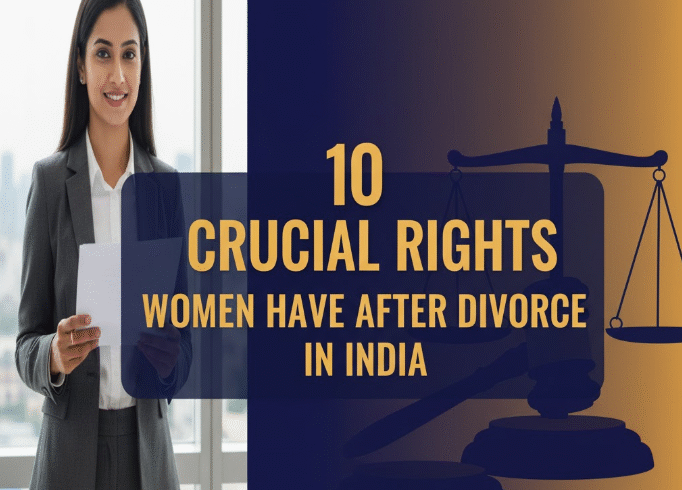Marriage is sacred in India but sometimes two people just aren’t meant to be together. When this is the case, what rules you follow depend on which religion you adhere to. In India, Hindu and Muslim religious communities have their own distinct laws governing married lives and how those can be ended. These discrepancies can influence everything from the length of time it takes for the process to what rights each person has in its aftermath.
If you are trying to grasp how divorce operates under these two competing systems, you’ve come to the right place. This explainer distills the main differences in basic terms so everyone can understand what sets Hindu and Muslim divorce laws apart.
Why Does India Have Different Divorce Laws for People of Different Faiths?
India is a land of diversity with multiple religions and the law respects this diversity. Laws relate to personal matters such as marriage, divorce, inheritance and adoption according to religious practice. Hindus adhere to the Hindu Marriage Act, 1955 as a guiding document, which defines the marriage between members of this community. Conversely, for Muslims, Islamic personal laws are applied; however these vary depending on basis such as Dharmaśāstra and Sharia law or legal principles.
It means that a Hindu couple and a Muslim couple living in the same city can have very different experiences when they seek divorce. So, what are the differences in detail?
Difference #1: The Legal Framework
Hindu Divorce Laws
Hindu divorce is the law of the Hindu Marriage Act, 1955. This law applies to:
- Hindus, Buddhists, Jains, and Sikhs
- All those who are not Muslims, Zoroastrians, Christians and Jews
The Act is a codified, written code that courts must adhere to. It was established by the Indian Parliament and can be altered only through new legislation.
Muslim Divorce Laws
Divorce among Muslims (whether by husband or wife) follows Islamic laws of personal law as seen in Quran. These laws are based on:
- The Quran (Islam’s holy book)
- The Hadith (sayings and actions of Muhammad)
- Traditional Islamic jurisprudence
Unlike Hindu law, Muslim personal law is not fully codified under one act, though the Dissolution of Muslim Marriages Act 1939 confers some rights on Muslim women.
Takeaway: Hindu divorce law is a modern, codified law, Muslim divorce law is grounded in religious text and practice.
Difference #2: Types of Divorce
Hindu Divorce Options
There are two kinds of divorce under the Hindu law, viz:
- Mutual Consent Divorce – Both parties are willing to separate (Section 13B)
- Contested Divorce – A divorce in which one partner files prescribing why the state ought to grant the divorce (Section 13)
Both kinds involve going to court, where a judge must sign off on the divorce.
Muslim Divorce Options
There are a variety of ways in which marriage under Muslim law can be terminated:
| Type of Divorce | Who Can Initiate | How It Works |
|---|---|---|
| Talaq | Husband | Husband pronounces divorce, usually three times |
| Khula | Wife | Wife seeks divorce through mutual agreement or court |
| Mubarat | Both | Mutual consent divorce by both parties |
| Talaq-e-Tafweez | Wife | Husband delegates right to pronounce divorce |
| Lian | Either | Divorce based on false allegation of adultery |
| Ila | Wife | Husband swears not to have sexual relations for 4 months |
| Zihar | Wife | Comparing wife with mother |
Key Takeaway: There is more variety of divorce procedures for Muslims, including some that don’t require going to court, whereas all Hindus are required to go through the courts.
Difference #3: Process of Pronouncement of Divorce
Hindu Divorce Process
Just about every Hindu divorce has to be filed in the courts. Here’s the general process:
- Petition filed in family court by one or both partners
- Court serves both parties notices
- Both sides present evidence and argue their point
- Court can recommend counseling or mediation
- If reconciliation fails, court hears the case
- If grounds are proved, judge issues divorce decree
The whole process is legal and prefers formalities at every stage.
Muslim Divorce Process
Muslim divorce can take place inside or outside the courts:
Talaq (Most Common Method):
- Husband is free to say “talaq” thrice
- The Supreme Court ruled in 2019 that instant triple talaq (saying it three times at once) was illegal
- Now, talaq will be uttered over three months with one utterance every month
- This gives time for reconciliation
Khula (Wife-Initiated):
- Wife goes to a High Court/Regular court or Sharia court
- She might have to pay back what she received in mahr (dower)
- Court grants divorce if reasons are valid
Key Takeaway: Hindu divorce always requires court approval, and some types of Muslim divorce can start outside the courts, but additional regulations have been added under new laws.
For more information on family law matters, visit https://zistalegalis.com.
Difference #4: Grounds for Divorce
Hindu Divorce Grounds
The Hindu Marriage Act provides for certain grounds on which divorce can be obtained:
Either Husband or Wife May File:
- Adultery (having an affair)
- Cruelty (physical or mental torture)
- Abandonment of at least two years
- Conversion to another religion
- Mental disorder or insanity
- Leprosy (advanced stage)
- Venereal disease (sexually transmitted disease)
- Renouncing the world (Sannyasa)
- Believed deceased (has not been heard of in seven years)
Additional Grounds for Wives Only:
- Husband was not divorced in case there is another wife living at the time of such marriage
- Husband’s crime of rape, sodomy or bestiality
- Decree for maintenance is not complied with for a period of one year
- Girl, if married before age 15 and rejects the marriage before reaching 18
Muslim Divorce Grounds
Muslim personal law is more flexible on reasons:
For Husbands:
- May in many cases get divorced without having to give a reason
- All he’s got to do is follow proper procedure
For Wives (Under Dissolution of Muslim Marriages Act, 1939):
- Four years passed, husband’s location unknown
- Failure to maintain for a period of two years
- Husband gets 7 years or more behind bars
- Husband’s impotency
- Husband’s insanity or serious disease
- Wife married before reaching the age of 15 (and can nullify marriage upon attaining age)
- Cruelty (physical or mental)
- Such other ground as may be recognized by Muslim law
Takeaway: Hindu law is a closed list of specific grounds; Muslim law is open-ended, particularly for men seeking divorce.
Difference #5: Waiting Period Requirements
Hindu Divorce Waiting Period
Under Hindu law, there is a compulsory waiting period:
- 6 months at least for mutual consent divorce
- First filing, then a six month wait
- Second motion filed six months later
- The divorce process is 6-18 months
This time gives them a chance to reconsider.
There’s no standard waiting period for contested divorces, but cases are taking 2-5 years on average, depending on the complexity and backlog of your particular court.
Muslim Divorce Waiting Period
Muslim law has the notion of Iddat (waiting period):
- Three menstrual cycles for menstruating women
- For women who do not menstruate, three lunar months
- Until childbirth if woman is pregnant
- The period shall run from the date of the pronouncement of divorce
The effect of this is to find whether or not the wife is pregnant and the object is reconciliation.
As for talaq, since the 2019 reforms, the husband has to give three months of pronouncement of divorce, during which there is already a waiting period.
Key Takeaway: Both systems have waiting periods, but in Hindu law it is for reconciliation and in Muslim law it was also about determining pregnancy.
Difference #6: Support and Alimony Rights
Hindu Law on Maintenance
Very strong provisions have been made for maintenance under the Hindu law:
During Divorce Proceedings:
- Wife can get interim maintenance (monthly alimony)
- Amount depends on husband’s income
- For living expenses and legal bills
After Divorce:
- Spouse can apply for alimony for life (permanent – one time or monthly)
- No preset formula; court determines on the basis of:
- Husband’s income and property
- Wife’s income and needs
- Standard of living during marriage
- Duration of marriage
- 25-33% of husband’s income through most court judgments
- Maintenance does not end until the wife remarries or her income is sufficient to support herself
Muslim Law on Maintenance
There is very little scope for maintenance as per the Muslim personal law:
During Iddat Period:
- Maintenance to be given by the husband for three months (iddat period)
- Must provide shelter or housing
- This is obligatory by Sharia
After Iddat:
- In the usual custom no maintenance is obligatory after iddat
- The Supreme Court of India’s judgment in Shah Bano case (1985) changed this
- Section 125 of the CrPC now protects women
- A landmark judgment in 2001 (Danial Latifi) established divorced Muslim women have right to fair provision for their future
Mahr (Dower):
- Wife has a right to mahr (dower)
- This may be immediate (paid up-front) or delayed (to be paid later or upon divorce)
Key Takeaway: Hindu law offers a much more general and sustainable basis of maintenance as compared to orthodox Muslim personal laws, although the courts have also provided some protection to Muslim women.

Difference #7: Child Custody Rules
Hindu Law on Child Custody
For Hindu law it is the welfare of child, which is put as foremost factor:
General Principles:
- Under the Age of 5 – Many times mother gets preference
- Father’s finances and older children taken into account
- Court can also ask children above 9 years about their preference
- Both parents can request custody
- Joint custody is also possible
- Non-custodial parent gets visitation rights
Custody Factors:
- Parent’s financial stability
- Emotional bond with child
- Parent’s character and conduct
- Child’s age and gender
- Child’s education and welfare
Muslim Law on Child Custody
In Muslim law, there is the concept of right to custody (called Hizanat).
Mother’s Custody (Hizanat):
- Mother wins custody of sons until the age of 7
- Mother can keep custody of daughters until puberty (around 12-14)
- This is referred to as the hizanat phase
- Father pays for child’s expenses
After Hizanat Period:
- Custody typically transfers to father
- But modern courts have held child’s welfare to be above religious rules
- Mother may seek to extend custody, if it is in child’s best interest
Guardianship vs. Custody:
- Father’s still the natural guardian, even when mother has custody
- Father takes big decisions (studies, marriage)
- Mother provides day-to-day care
Bottom Line: Hindu law is more open-ended and gender neutral in matters of custody, while orthodox Muslim tradition has automatic age-related rules, though the courts now emphasize the needs of a child over strict religious standards.
You can learn more about personal laws and legal rights at the Supreme Court of India website.
New Laws You Need to Know
Triple Talaq Ban (2019)
Instant triple talaq was criminalized in 2019 under the Muslim Women (Protection of Rights on Marriage) Act, 2019. Now:
- Declaring “talaq” three times at once is a crime
- Penalty: Up to 3 years imprisonment
- Talaq needs to be pronounced over a period of three months
Uniform Civil Code Debate
There’s debate about establishing a uniform civil code (UCC) to apply the same divorce laws to all regardless of religion. A few states have begun to implement it:
- Uttarakhand became the first state of India to implement a UCC in 2024
- Supporters say it promotes equality
- Critics say it represents a threat to religious freedom
The debate rages on, and it could alter how divorce unfolds in India in years to come.
Quick Comparison Chart
| Aspect | Hindu Divorce Law | Muslim Divorce Law |
|---|---|---|
| Main Law | Hindu Marriage Act, 1955 | Islamic Personal Laws & Sharia |
| Court Required | Always | Not always (but increasingly required) |
| Types of Divorce | 2 main types | 7+ different ones |
| Waiting Period | 6 months (mutual consent) | 3 months (iddat period) |
| Maintenance | Comprehensive, long-term | Limited to iddat period (with exceptions) |
| Child Custody | Based on child’s welfare | Age-based rules decided by courts |
| Gender Equality | More equal in procedure | Historically favors husband’s rights |
What This Means for You
If you’re thinking about divorce or just want to know your rights, here’s what you need to know:
For Hindus:
- Keep in mind that the court process will take time
- You will need your grounds to be strong in the case of contested divorce
- Women have strong maintenance rights
- Child custody is about what is in the best interest of the child
For Muslims:
- Know what kind of divorce you are in
- Women have to be informed about khula and what their rights are under the 1939 Act
- Triple talaq is now illegal
- Courts are taking a bigger role in Muslim divorces
- Learn what rights you may have to mahr and maintenance
For Everyone:
- Try mediation before going to court
- Keep all financial documents organized
- Hire a family lawyer that specializes in this type of case
- Think about children’s welfare first
- Know that the laws are changing, and though slow, moving toward more equality
For expert legal assistance, visit https://zistalegalis.com.
Frequently Asked Questions (FAQs)
Can a Hindu husband give divorce to his wife without approaching court?
No, Hindu divorces must in all cases involve the courts. A husband cannot divorce his wife outside of a court. Both parties can either agree and file jointly or one party must file contested divorce papers with a justifiable cause.
Is triple talaq still legal in India?
No, saying “talaq” three times in one sitting — also known as instant triple talaq — has been outlawed since 2019. The Muslim Women (Protection of Rights on Marriage) Act criminalized it with a jail term of up to three years. Talaq now must be uttered slowly over three months.
What is the time frame for a Hindu divorce in India?
A mutual consent divorce is generally a six to eighteen month process. The statute stipulates that the first and second motion should be six months apart. Contested divorces typically last longer—between 2 and 5 years depending on the complexity of your case, and the backlog in your local court.
Can a Muslim woman divorce her husband without his consent?
Yes. A Muslim woman can apply for divorce either by the process of khula (with or without consent of her husband) or she may go to the court under the Dissolution of Muslim Marriages Act, 1939. She may obtain divorce on failure to maintain, desertion, husband’s imprisonment or cruelty.
Who gets custody of children when parents divorce?
This depends on several factors. For Hindus, the courts look only at the best interest of the child, weighing such things as age, emotional bonds and financial stability. For Muslims, mothers traditionally get custody until sons are 7 and daughters reach puberty, but modern courts give greater emphasis to the well-being of a child than application of religious rules.
Do women in both communities receive alimony if they get a divorce?
Yes, but the extent differs. Hindu women are granted maintenance rights which may continue for life or till she gets married again. Muslim women are entitled to maintenance only for the duration of Iddat (three months) as per Muslim Personal Law, though through court judgments (Shah Bano and Danial Latifi cases) these provisions have been extended to allow for a fair provision and maintenance to be claimed in future.
What is the difference between Talaq and Khula?
Talaq is a divorce initiated by the husband according to Muslim law. Khula is a form of divorce initiated by the wife, where she traditionally returns her mahr (dower) or pays it back to the husband. Both are recognized forms of Islamic divorce but in one the husband initiates the divorce, while in the other it originates with the woman.
What religion will interfaith (Hindu and Muslim) couples follow at the time of their divorce?
In India, interfaith marriages are generally done under the Special Marriage Act, 1954. When such couples divorce, they do so following the provisions of the Special Marriage Act and not their respective personal religious laws. This law has its own rules. It is not governed by Hindu personal laws or Muslim personal laws alone.

Final Thoughts
The Hindu and Muslim laws relating to divorce in India illustrate two contrasting systems of termination of marriage. Hindu law is much more modern and codified, requiring court involvement at every stage; Muslim law is tied to religious tradition and allows various forms of divorce.
The variations are about how the divorce process is initiated, thresholds for what it takes to get a divorce, rights of maintenance and custody. Hindu law in particular is more comprehensive regarding protection of women’s rights, particularly as regards maintenance for long-term. While there is more latitude in ways to divorce under Muslim law, it has traditionally been weighted in favor of men’s rights despite new laws and court rulings.
Both systems are evolving. The ban on triple talaq, increase in maintenance rights of Muslim women, and the renewed conversation around the Uniform Civil Code all suggest that India’s divorce laws are evolving towards more egalitarian and protective norms for everyone involved, especially children and women.
Regardless of whether you’re Hindu, Muslim, or just interested in the systems governing Indian families, being aware of these key differences can help keep you informed about your rights and make better-informed choices. If you’ve found yourself in a situation that calls for divorce, be sure to speak with a reputable family lawyer who knows the laws you are under.
Divorce is still an intensely difficult process, regardless of which law applies. The idea is always to process these things with as much dignity, justice and particularly sensitivity for any children involved. The laws give us the framework, but how people treat one another during this challenging moment is just as important.





